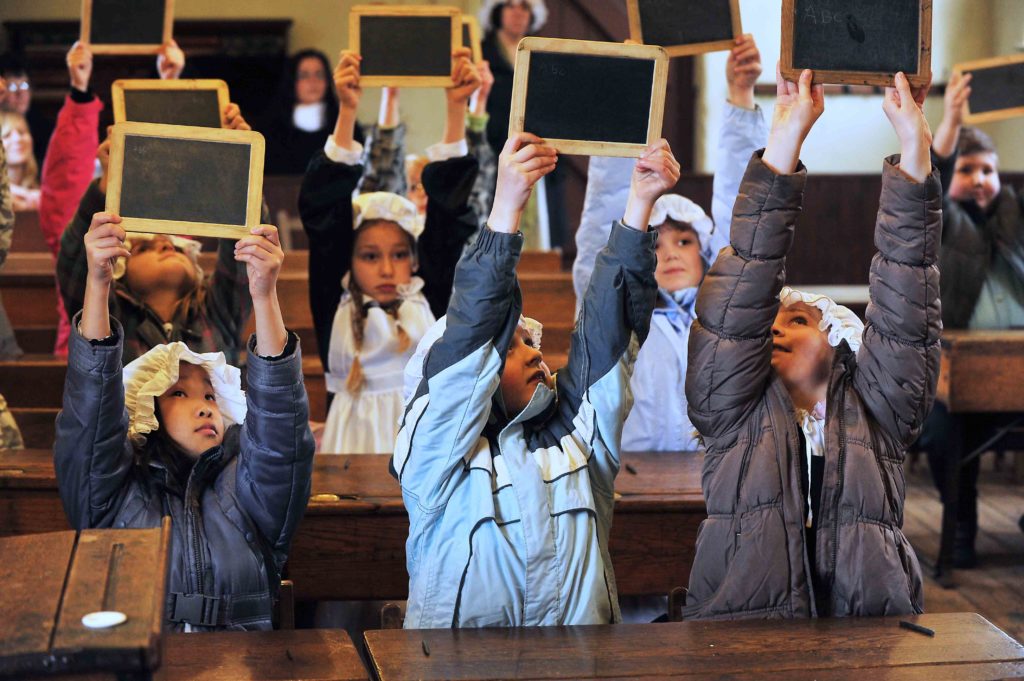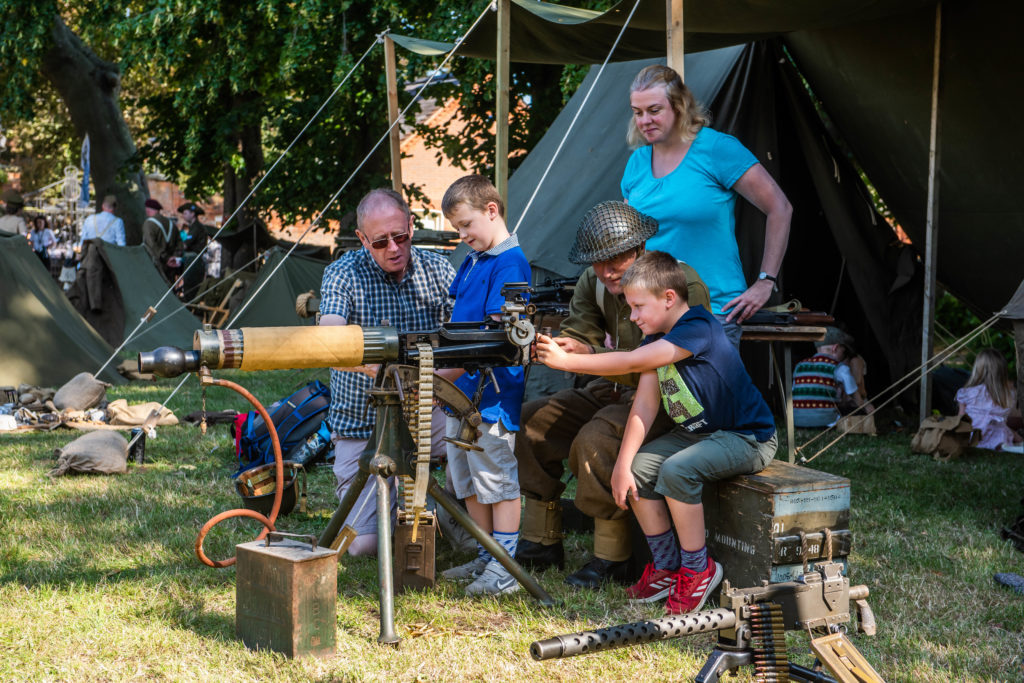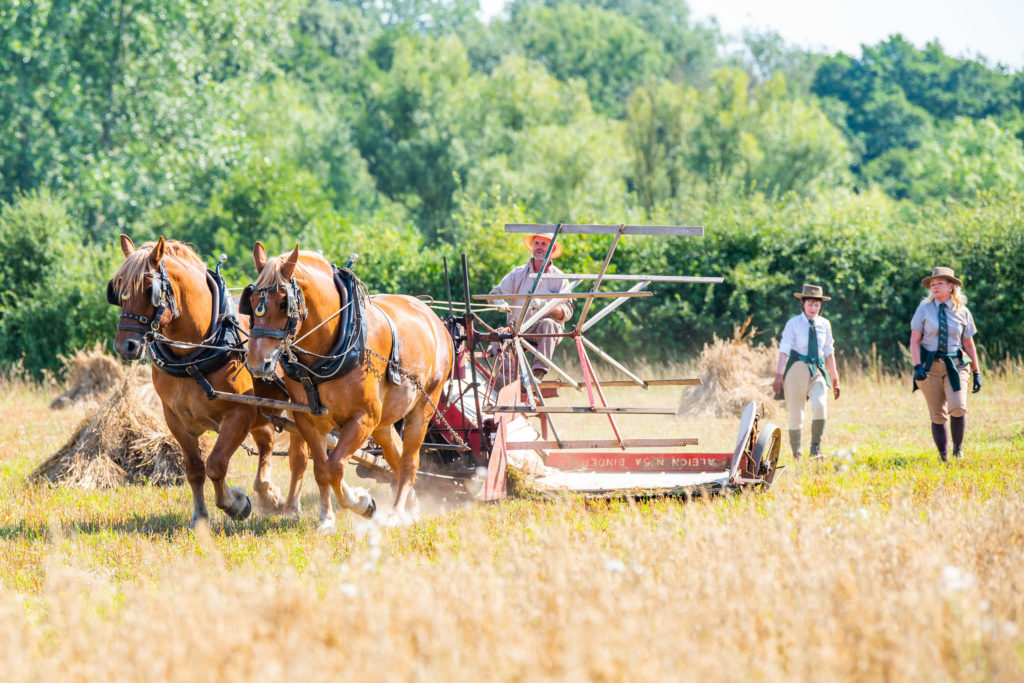Gressenhall Museum and Workhouse, Education Skills Sharing Session
Join Gressenhall Museum and Workhouse in a Q&A Education Skills Sharing Session on Twitter from 15:00-17:00 on Thursday, 21 May
Gressenhall Farm and Workhouse
Gressenhall Farm and Workhouse is, perhaps unsurprisingly, a workhouse and heritage farm in the centre of Norfolk. It tells the story of rural Norfolk and the Victorian workhouse system in a way that directly engages with the past but also inspires us to think about today.
Our site includes a range of workhouse buildings, such as a chapel, itch ward and Porter’s Lodge. The museum displays are mainly housed in the main workhouse building, which were redisplayed in 2015 through a Heritage Lottery Funded project. These displays are interactive, thought-provoking and insightful. For instance, whilst viewing the type of food they ate in the workhouse you are asked where do people get food when they are starving today?
Learning at Gressenhall Farm and Workhouse
The workhouse plays an important part in our education offer, with sessions from Key Stage 2 to A Level using settings and collections to support different curricula. It also forms the backdrop for a range of public event days, tours and school holiday activities.
Theatre in Education has been an important part of the offer at Gressenhall for the past three decades. Interacting with costumed characters who may illustrate different technologies as well representing attitudes to society, poverty and gender fits well with our site.
https://www.museums.norfolk.gov.uk/gressenhall-farm-and-workhouse/learning

Schools Programmes
Developed in consultation with teachers, educational partners and museum colleagues our school programme is varied and flexible. It is a led-session programme, mainly delivered with costumed characters. We are very fortunate to have a site that lends itself to creating themed days, from the Wicked Witch’s Wood for our KSR Once Upon a Time Day, to the Victorian farmer’s wife’s kitchen to cook a treat on our KS2 Victorian Activity Day.
The majority of our visits come from KS2 and KS1, with a smaller number of visits from Secondary and SEND schools. As part of a Local Authority museum service we offer free self-led trips to Norfolk schools, but it is our led sessions that see the most repeat visits, with a total of 10,000 school children visiting us annually. Our facilitators deliver learning across the curriculum with a focus on history and literacy. Our approach is to engage all and we offer bespoke days within our offer to enable all to access us and our local history. This approach was rewarded with a Sandford Award in 2017.
Family Programmes
Our site at Gressenhall has so much to engage families, including a stamper trail and adventure playground. But, our events and school holiday programmes really enable families to engage with us in an interactive way. For each school holiday we encourage a new way of exploring our museum and site through play, closer looking and creativity. Our events programme often sees our site transformed and allows families to be transported into the past or another world.

Community Programmes
We have been fortunate enough to offer community programmes through Heritage Lottery Funding. Firstly, as part of our redisplay in 2015 where we encouraged different community groups to engage with our collections through creating a spoon person to represent each individual who was an inmate in the workhouse. We have continued with our community programme through Kick the Dust, designed to engage with young people aged between 11-25. Through this Gressenhall has worked with local young people to develop an LGBTQ+ social media project and public activities on the Climate Crisis.
Access programmes
Our access programme works in different forms. We offer a work experience programme for young people with additional needs that provides them with the opportunity to work meaningfully on our farm site. For people with autism we also offer an early bird opening at different dates throughout the year, making sure that our site is more accessible to those with autism and providing them with the space to access it.
Public programme
Our public programme represents the versatility and variety that our site has to offer. For 2020 we have designed led tours to highlight the personal stories that we are continuing to uncover, building on our Taboo Tour programme from 2019. Furthermore, we offer curator led tours of our Woolly Mammoth fossil within our Collections Store. We also have an exciting events programme that can attract 3000 people in one day, from ‘Village at War’ to ‘Apple Day’ we really do have something for everyone. Through participating in wider events such as Heritage Open Days and Open Farm Sunday we are able to show the special nature of our site to everyone and relish the opportunity to do so.

Ask our team about…
We are a reflective museum and constantly look for new ways to engage and inspire people. One area in which we are consistently grappling with is about representation of people in the past and to what extent should we sacrifice historical ‘fact’ in order to engage audiences? By delivering through costumed characters we often conform to stereotypes due to time constraints in sessions and to engage a wide range of different learners. For instance, the workhouse master or schoolmaster is best characterised as an overbearing pantomime villain who represents predictable higher status attitudes to poverty, gender and so on. This is a gross simplification of the past, but an effective one. Is this acceptable in order to engage audiences who may not respond to more academic approaches?
We would love to discuss this further with you and we are also happy to answer any other questions. You might want to ask us about outside learning or our involvement with learning volunteers, how we develop new programming or the challenges about working with both children and animals! Or you may want to ask us about how we are working in our new indoor environment and what we have done to try and continue to engage our public.
You can find out more about our museum here.
